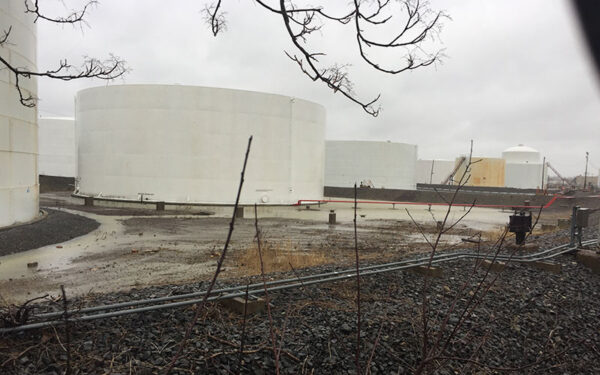Yesterday, I came home and found a letter in a hand-written envelope waiting for me. I did not recognize the return address. Inside was a two-page letter, hand-written on yellow lined paper. It said:
I wanted to send you a quick note to thank you for all of the hard work and dedication you and the Conservation Law Foundation have given towards the opposition of the proposed Invenergy plant here in Burrillville. Without your hard work, the plant would probably be under construction, and our lives changed forever. Whatever the final decision may be, it is satisfying to know that people such as you are there to fight for us when we need it the most.
Enclosed is a little something for the Foundation. I wish I could add a few zeroes to it . . . I know this is not nearly enough to start to cover what the Foundation has put into the opposition, but if everyone in the town who opposes the plant (90% or more) would also donate, I am sure it would go a long way toward covering your expenses. My wish is that these people would donate as well.
Thank you, again. I know it can never be stated enough how much we appreciate [CLF’s] help, and please thank all of the people at the Foundation who have helped in this fight.
Enclosed with the letter was a check for $150.
The letter got me thinking.
These can be discouraging times for environmentalists. The President believes that climate change is a hoax, and his budget proposes slashing the EPA by a third. But – even in the face of the discouraging new reality – CLF’s efforts are noticed and appreciated. The first sentence of the letter says: “ . . . thank you for all of the hard work and dedication you and the Conservation Law Foundation have given . . . ”
It had been some time since I had thought about the first sentence of CLF’s Mission Statement: “CLF protects New England’s environment for the benefit of all people.” My correspondent (who may never have visited CLF’s website) obviously understood that when he wrote: “It is satisfying to know that people such as you are there to fight for us when we need it the most.” (“Yes!” I said to myself. “That’s what CLF does!”)
There is a deeply personal dimension here, too. As I tell my kids (with some regularity), it is a very, very rare treat for a lawyer to be able to work on the side of the angels in every, single case. Many lawyers never get to do public interest law; many others, who are in commercial practice, get to take a pro bono (public interest) case on rare occasions. (And these latter lawyers often find that their pro bono cases are the ones that present the most interesting and challenging issues.)
But every case CLF takes is in the public interest, and CLF lawyers work every day on cutting-edge legal theories like how to use the law to address climate change! CLF sues ExxonMobil for its decades of climate denial. CLF defeats proposals for new gas pipelines here in Rhode Island and in the rest of New England because we know that the age of fossil fuels must end. And as my recent correspondent knew, CLF gets to litigate against the dirty, carbon-emitting Invenergy fossil-fuel power plant in the Energy Facility Siting Board and in the Superior Court.
Of course, there is one more important point here – that my correspondent obviously understood. This work by CLF “to protect New England’s environment for the benefit of all people” is only possible because of the generous financial support of CLF’s members and friends.
When I shared that unexpected letter with my CLF colleagues I told them, “This is why I love working for CLF.”



